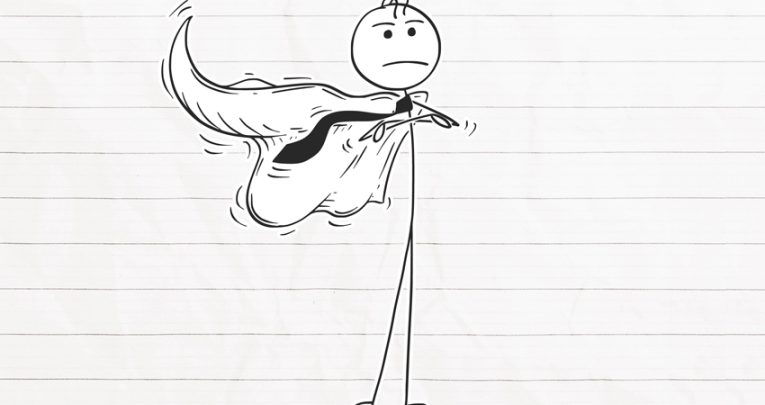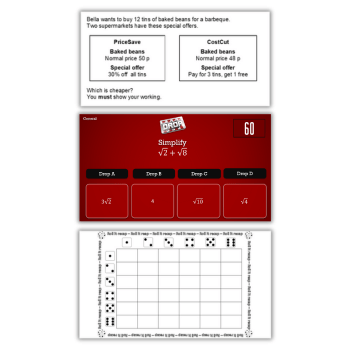Maths until 18 – Why force students to study a subject that some simply don’t like?

Students should certainly study maths – but not necessarily to the exclusion of other subjects, says John Lawson…

- by John Lawson
- Former teacher, governor, author & owner of tutoring service Visit website

So Rishi Sunak wants all UK teenagers to study maths until 18.
With all due respect to the PM, I hope his ‘benign advice’ meets with widespread resistance from secondary leaders and maths teachers.
Maths is a vital subject, of course. We should teach it – arithmetic, especially – as well as possible, for as long as possible. However, any suggestion that maths is somehow ‘superior’ to the rest of the curriculum is misplaced.
The jewel in our educational crown is the solemn promise we make to sixth-formers that we will honour the subject choices they make that best suit their talents. Teachers should never be asked to break that promise.
Hearts and minds
The late Sir Ken Robinson spoke eloquently about the way in which intelligence is diverse, dynamic and distinct. Countless educators admire his ‘Do Schools Kill Creativity?’ TED talk for a reason. His message was a simple, yet profound one. It was that we should nurture students’ imaginations and let dancers be dancers, musicians be musicians and artists be artists.
Listening to both the hearts and minds of teenagers is a crucial pedagogical skill; we don’t just function from the neck upwards.
When we respect teenagers for who they are and what they might one day become, what you’ll often find is that they manage to forge their own pathways to happiness and success. As Oscar Wilde once sagely advised, ‘Be yourself; everyone else is taken.’
As things currently stand, we typically teach school students maths in some capacity virtually every day for a span of 11 years. If, after that much time and combined effort, a child still doesn’t secure a 4 or 5 in their GCSE maths exams, we should perhaps accept that forcing them to acquire higher maths skills regardless could significantly distract them from the more specialised studies they’ll be moving on to.
Let’s not blame maths teachers or students for those GCSE failings, as to do so would be unfair. Most teenagers wouldn’t see themselves as ‘anti-maths’, or indeed ‘pro maths’. They likely aren’t clamouring for opportunities to study further maths.
If it’s the case that a student simply doesn’t find maths as enjoyable a subject as drama, art, history, music or politics, that’s simply a preference – not a crime.
Maths until 18 and prejudice
Instead, why can’t we recognise and celebrate the sheer diversity of our collective teenage talents? I’d argue that doing this could even be crucial for our efforts at maintaining a vibrant democracy.
Trending
Many years ago, I taught RE to a rare, bona fide philosophical genius in Y11. She went on to became the school’s head girl. The sole blight on her otherwise stellar CV was a lower-set placing in maths.
“Why can’t we recognise and celebrate the sheer diversity of our collective teenage talents?”
As brilliant as she evidently was, neither she nor anyone else could quite understood why she struggled as much as she did with maths. She was an archetypal overachiever, but one who worked hard for an overall ‘D’ grade in maths that she was deeply ashamed of. She would frequently punish herself for her ‘failures’ by refusing food.
At the heart of every prejudice lies reductionism. It’s ignorance that compels some people to reduce others to little more than their sexuality, race, age, colour, ethnicity or religion, or any other personal quality. My fear is that insisting on teaching post-16 maths to everyone amounts to naked prejudice, rather than positive discrimination.
Why focus on what teenagers don’t excel at, rather than fostering their unique talents?
Early excitement
We don’t need to be skilled mathematicians to make our mark in life. Even if we insist that every student studies maths to 18, those who barely scrape through their GCSE exams will rarely become A Level maths hotshots. We don’t usually excel at subjects we hate.
I believe Mr Sunak is staring into the wrong end of the telescope. Aristotle was recorded as saying, ‘Give me a child until he is seven and I will show you the man’. We need to focus far more on exciting our primary school children in maths earlier on, so here’s a thought. Why not enlist a major media company or two and task them with creating a popular superhero who solves global problems with their advanced maths skills?
Well, I’ve calculated my angles and can’t wait to pitch my own ‘Fraction Man’ creation to Mr Sunak and assorted Disney executives…
John Lawson is a former secondary teacher. He now serves as a foundation governor while running a tutoring service. He’s the author of the book The Successful (Less Stressful) Student (Outskirts Press, £11.95). Find out more at prep4successnow.wordpress.com or follow @johninpompano










